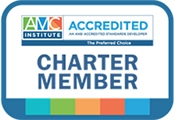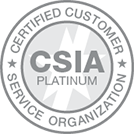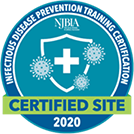Two of AH's Financial Professionals Discuss Financial Health Longevity
From shifting revenue to the CARES Act and more
Association Headquarters’ financial pros, Chief Financial Officer, Mike Pulik, CPA, CFE, CGMA, and AH’s Director of Client Financial Services, Justin Martin, CPA, discuss the financial implications of the CARES Act and what association leaders can do to combat COVID-19 financial challenges, amid other ways they can manage association finances.
Associations and the CARES Act
Associations have unique financial needs and challenges that are exacerbated by an event like COVID-19, such as a dependence on revenue generated from in-person conferences that are no longer able to happen, a limited ability to obtain debt financing, being ineligible to apply for certain government assistance, and more.
Due to the increasing hardships caused by the COVID-19 pandemic the United States government developed the Coronavirus Aid, Relief, and Economic Security (CARES) Act.
The CARES Act includes the Paycheck Protection Program (PPP), which aims to help small businesses gain access to a loan they need to keep their workers employed. If at least 60% of the loan is used to maintain payroll, health insurance, or rehire employees who were laid off, the loan may be completely forgiven. If complete forgiveness isn’t obtained, the remaining balance is transformed into a two- to five-year loan with a 1% interest rate.
While the PPP has helped many organizations stay afloat and retain employees during COVID-19, the reach of the PPP has been limited for some organizations. The ASAE, alongside more than 4,300 organizations across the country, sent a letter to Congress and the Trump administration to appeal to them to make trade and professional associations eligible for the PPP.
“A lot of associations signed onto the letter because when the PPP came out, it was only open for 501(c)(3) organizations, but a lot of membership organizations are actually (c)(6) organizations and weren’t eligible for the PPP,” said Martin. Currently, 501(c)(6) organizations are not eligible for PPP loans but may be eligible for other funding under the CARES Act.
Investing for Associations
Associations may hold cash in reserves to cover operating expenses during difficult times. Depending on the needs of the organization, reserves can be allocated between cash and investments. However, investments aren’t there just to be drawn on in hard times. “Investments are actually an integral part of the overall financial health picture of the organization,” Pulik said. When reserves are too high it may indicate the organization is not utilizing that money to invest in growth opportunities or other value-added services that can benefit and drive membership or other revenue-generating initiatives. “Providing a funding source for activities that bring in more money and keep content and value proposition fresh is critical,” said Pulik.
Investments make great sense when the stock market is performing well and yielding strong returns. But the stock market has also been reactive to the effects of the pandemic on the economy. This, says Martin, is why associations need to diversify their investments, ensuring that they hold a healthy mix of different investments.
A diversified approach to investments begins with an investment policy created with the associations’ investment advisors. “Associations need to work with their investment advisor to develop a documented policy that outlines the specific percentages they're going to invest in each category, whether it's stocks, bonds, CDs, or other investment vehicles,” Martin said. “This policy can help insulate them if there’s a swing in the stock market.”
Also worth noting is the need to be aware of and evaluate the fee structure associated with investments. Association leaders should evaluate the fee structure for their investments to make sure that they’re in alignment with the services that the investment firm is delivering. It’s easy for fees to get out of control, so this evaluation is a necessary part of an association’s investment strategy.
Calling in the Pros
Association leaders are excellent at what they do: running and guiding their association. However, the financial challenges brought about by COVID-19 may be beyond even the most adept association leader. Because these challenges may have high-stakes consequences for organizations, association leaders are increasingly relying on financial professionals to guide them. AH’s financial services professionals have been influential in helping associations navigate these challenges by:
- Understanding all aspects of the CARES Act. The CARES Act is a difficult document to read through and understand, even more so for volunteer-led organizations. “We made an effort to get in early to understand the requirements of the CARES Act,” Pulik said. “This head start has allowed us to help organizations that are eligible to apply for and receive funding, which had great results.”
- Providing training for association leaders. AH’s financial services professionals have held trainings about the PPP and Economic Injury Disaster Loans (EIDL) program offered by the Small Business Administration, and assisted associations with their applications to these programs as well as applications for forgiveness through the PPP.
- Developing financial models to prepare for different scenarios. AH’s financial services team members prepare customized financial models based on scenarios envisioned by association leaders related to the recent pivots to virtual meetings, membership declines, and more. “The models provide different scenarios, maybe the most likely scenario, middle of the road, and perhaps a worst-case scenario, so that they have three scenarios to look at to weigh the options,” Pulik said. These financial models allow association leaders to make informed financial decisions for the organization.
Visit associationheadquarters.com/financial-services to learn more about financial services at AH, or contact awilliams@ahint.com for more information.




